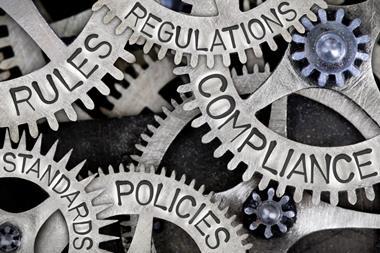Evaluating all aspects of your reputation and what affects it can help in achieving key business objectives, writes Basil Towers
Reputation is the largest single component of business valuation and a major source of competitive advantage. Institutional investors now estimate that at least one third of a quoted company"s market value lies in its reputation. For service companies the figure is much higher and may be over 90%. Given a total capitalisation of the London equity market of around £2,000bn, it means that companies listed in London alone share reputational assets worth some £750bn.
Not surprisingly, most organisations instinctively recognise reputation"s role in boosting intangible asset value and as something that needs more strategic management rather than hoping a busy tactical public relations campaign will do the job. However, progress can be slow because leaders are unsure how and where to begin a more strategic approach, what kind of management information to collect, or how to report the key messages to internal and external audiences.
A structured approach to auditing a company"s reputation means aligning business and reputation objectives and both sets of key performance indicators. It means identifying the role and impact of reputation on the ability of the organisation to achieve its objectives.
There are clear business benefits to assessing how an organisation is perceived by influential stakeholders, collecting existing reputation management information, highlighting and filling "information gaps", identifying what influences the way your organisation is perceived and reporting on reputation issues and trends. An audit of this nature should be as robust and enlightening as any financial or operational audit.
Crucially, for all but the most navel-gazing of CEOs, it also provides a sound basis for competitive positioning and key communication objectives that directly relate to the recovery, protection and enhancement of reputation. And it stands directors in good stead for tackling the requirements of the new Operating & Financial Review (OFR). The requirements of the OFR are to be part of the new Companies Act and are expected to be enacted by 2004. The Act will make it clear that, for company directors to fulfil their duties to shareholders, they must take account of the views and concerns of, and the reputation risks posed by, stakeholders, where these are material to the business.
A good reputation based on genuinely responsible business practice enables an organisation to undertake its business with minimum interference, drawing on a deserved bank of goodwill in times of crisis. It will help an organisation attract the best suppliers and partners and may go some way in securing approval on regulatory issues. Crucially it will support capital raising and is likely to reduce the cost of capital, thus maintaining shareholder value. Internally, it should build and maintain employee loyalty and motivation – a fundamental business priority perhaps too often overlooked as a soft issue.
Based on concrete experience working with UK plc, I am convinced that the more effective a company becomes at reputation management, the more likely it is to see improved delivery of business objectives that have a reputation component. This applies to market share growth, M&A success, reduced business acquisition costs and better retention of customers, as well as the recruitment and retention of higher quality staff.
Companies that invest properly in reputation management can expect to have a more co-operative dialogue with stakeholders than their competitors. They will also gain clarity on what determines and drives reputation, the long and short-term areas for improvement and a stronger grasp of stakeholder issues and concerns. This knowledge should lead to the development of improved positioning and platforms for communications, more effective execution of those programmes and the all important integration of reputation with other business processes.
A more informed view on how a company is perceived by all its stakeholders is surely a powerful communications tool when tackling city expectations in difficult times, or when reacting to shareholder demands. The board may choose to view its position in isolation or compare it to a selected peer group. Evaluating all aspects of reputation and what affects it essentially translates as a high-level review of business practice, products and services and their associated risks and opportunities.
Basil Towers is chairman of European reputation management consultancy Christow, www.christow.co.uk



















